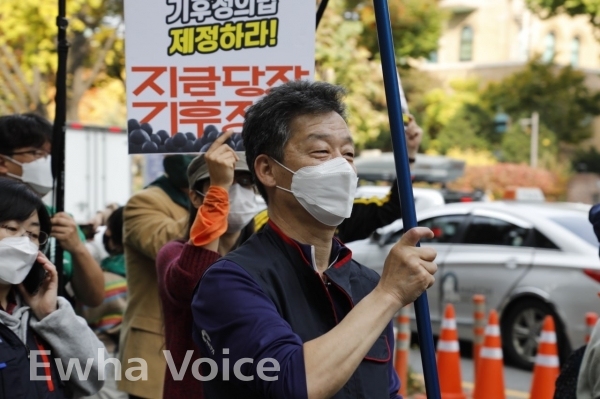
The South Korean government has had to rethink its plans to increase working hours after backlash from the younger generation who argued the plan would destroy their work-life balance.
The government announced its intention to raise the maximum weekly working time to 69 hours on March 6. However, as a result of protests from the country's Millennials and Generation Z, President Yoon Suk-yeol ordered the government agencies to reconsider the measure and “communicate better with the public, particularly with Generation Z and Millennials.”
Currently, the working classes' foremost worry about the new working system is the possibility of health hazards or even worse, the possibility of kwarosa, a Korean expression for casualties due to overwork.
Seong Yun A, a freshman from the Department of Consumer Studies, shared her concerns about the dangers of overworking. She experienced physical symptoms such as severe fatigue, dizziness, and nausea after working 14 hours at an academy as a teaching assistant.
“The current change seems rushed, and I believe that work and life balance should be ensured to avoid severe health hazards,” said Jennifer Lee, a freshman from the Division of International Studies.
In addition, Kim Chaeyeon, another freshman from the Division of International Studies, proposed that issues regarding work hours should be dealt with only after the government has resolved persistent labor welfare problems.
All told, the general consensus among the Millennials and Generation Z is that the policy puts workers in danger as it has failed to address concerns over the numerous instances of workers falling victim to health issues due to overwork.
Questions have been prompted by the controversy about the purpose and background of the policy’s making. President Yoon claimed the new regulation was intended to allow workers to accrue overtime hours in return for a full-time rest period, which will secure leisure time and child- rearing commitments. The increased weekly cap can ultimately solve the low birthrate problem.
However, Lee Jung-Hee, a policy director in charge of establishing business plans related to the government’s labor and social policies, for the Korean Confederation of Trade Unions, opposed the government’s claims.
“The low birthrate measures and the 69-hour workweek are directly opposed to each other,” Lee said. “The government’s plan to introduce the 69-hour system reflects companies’ demand to overcome the crisis through traditional methods of long-term labor and labor cost reduction, rather than future-oriented innovation under unfavorable economic conditions such as global economic uncertainty, industrial transformation, and the climate crisis.”
Citing an urgent need for meaningful labor reform, Lee emphasized that Korea is the world’s top-ranking country for industrial accidents, with annual averages of more than 2,000 worker injuries and over 500 deaths from overwork.
Currently, Korea’s labor law legally allows discriminatory treatment, such as an unpaid weekly holiday or overtime allowances for workplaces with fewer than five employees and employees working less than 15 hours a week. As a result, splitting workplaces or splitting work hours is prevalent in South Korea. Therefore, Lee suggested that discrimination should be resolved through the recognition of the nature of workers and the guarantee of rights for special employment workers, and the full application of the Labor Standards Act.
Kim Seol, chairman of Youth Community Union, works to revise the minimum wage and salary-oriented wage system to reconstruct youth unions and protect labor rights.
Kim personally felt insulted by the government’s unilateral changes to the policy. He noted that it was not long after the declaration of the 69-hour regulation that President Yoon ordered a revision to 60 hours instead. This, too, was settled without consulting citizens to reflect their thoughts.
According to a survey conducted by Youth Community Union from March 19 to 23, about 222 of the younger generation respondents have questioned the irony of creating a policy that is contradictory to the low birth rate crisis and claimed that there would be casualties even before they reach the resting period. They also stressed that recruits are unable to voice their opinion for 3 to 4 days of rest because there usually is a lack of working force to cover their vacancy.
Hence, in Kim’s view, it rather seems more appropriate for a significant reduction in working hours than an increase.
“Even if overtime units are expanded, full implementation of the 40-hour workweek system should be established as a priority principle,” Kim said. “Working time makes it possible for every citizen to live a sustainable life. Without full understanding of reality, I wonder if labor reform dictated by those in power will be successful.”
As such, Yoon’s 69-hour workweek policy certainly presents problems to the general public, and his administration’s immediate challenge is to resolve this issue through a smooth, harmonious consensus.

